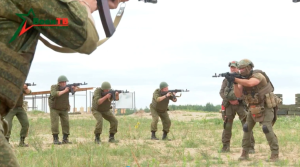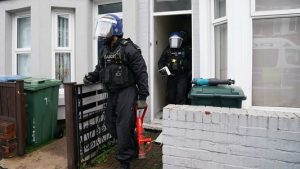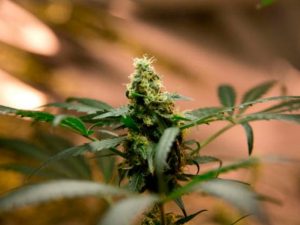UK drug gangs have been implicated in a significant money laundering scheme involving Russian criminals, as revealed by the National Crime Agency (NCA) in a recent operation dubbed “Operation Destabilise.” This international crackdown has exposed a network that facilitated the conversion of illicit cash into untraceable cryptocurrency, allowing drug traffickers to obscure the origins of their profits during the pandemic lockdown when traditional cash transfers became challenging.
Key Developments
- Money Laundering Scheme: The NCA uncovered a vast operation worth billions, where UK drug gangs paid Russian criminals to exchange their dirty cash for cryptocurrency. This enabled them to avoid law enforcement scrutiny while facilitating the purchase of narcotics, particularly cocaine from South American cartels.
- Operational Networks: Two primary cryptocurrency networks, Smart and TGR, based in Moscow, played crucial roles in this scheme. They had accumulated significant cryptocurrency through ransomware attacks and formed partnerships with UK drug networks to quickly convert illicit cash into usable assets
- Scale of the Operation: The operation spanned over 30 countries and resulted in 84 arrests, with 71 individuals apprehended in the UK alone. Authorities seized £20 million (approximately $25 million) in cash and cryptocurrency linked to an estimated £700 million in drug sales.
- High-Profile Sanctions: Following the investigation, the US Treasury imposed sanctions on key figures involved in these operations, including George Rossi, a Ukrainian national leading TGR, and his associates. These actions highlight the international dimension of the money laundering activities and their connections to Russian oligarchs and cybercriminals.
Implications
The NCA’s findings illustrate a complex web linking Russian elites, cybercriminals, and UK drug gangs. Rob Jones, director general of operations at the NCA, emphasized that this operation marks a significant breakthrough in understanding how illicit funds are integrated into legitimate economies. The investigation has not only disrupted these networks but also provided insights into how they functioned as financial hubs for various criminal enterprises.
This case underscores ongoing concerns about money laundering and its implications for global security and crime prevention efforts. The NCA’s proactive measures aim to deter future illicit financial activities by increasing scrutiny on such operations and their facilitators
How did the lockdown impact drug gangs’ ability to launder money
The COVID-19 lockdown significantly impacted drug gangs’ ability to launder money, creating challenges and prompting adaptations in their operations.
Challenges Faced by Drug Gangs
- Cash Management Difficulties: During the lockdown, UK drug gangs struggled to offload cash from street sales into the legitimate economy. The closure of many cash-intensive businesses, such as bars and restaurants, limited their usual avenues for mixing illicit funds with legitimate earnings.
This situation hindered their ability to procure more narcotics, particularly cocaine from South America, as they found it difficult to transfer substantial amounts of cash out of the country
- Disruption of Traditional Channels: With border closures and commercial restrictions in place, drug trafficking and cash smuggling operations were curtailed. Criminal organizations that typically relied on established logistical channels for moving cash faced significant setbacks as ports and airports were less accessible during the pandemic
- Increased Risks: The NCA noted that the pandemic forced criminals to take additional risks in moving cash around. The closure of many businesses robbed organized crime groups of opportunities to stash or launder their cash effectively, making it harder for them to conceal the proceeds of their crimes
Adaptations to New Circumstances
- Use of Cryptocurrency: In response to these challenges, UK drug gangs turned to Russian criminal networks that facilitated the conversion of dirty cash into untraceable cryptocurrency. This shift allowed them to safeguard their profits from law enforcement scrutiny while circumventing traditional laundering methods that had become less viable during the lockdown
- Emergence of New Networks: The National Crime Agency (NCA) identified two major cryptocurrency networks based in Moscow—Smart and TGR—that capitalized on the situation. These networks had accumulated significant cryptocurrency through ransomware attacks and offered UK drug gangs a means to convert illicit cash into usable assets quickly, charging a commission for their services
- Exploitation of Government Aid: As government bailouts provided financial support to small businesses during the lockdown, criminals found new opportunities for money laundering within this flurry of financial activity. This created cover for illicit transactions, allowing them to re-enter the economy under the guise of legitimate earnings
The lockdown thus forced drug gangs to innovate and adapt their money laundering strategies significantly, leading to a complex interplay between traditional crime methods and new digital avenues for obscuring illicit gains.
What role did cryptocurrency networks like Smart and TGR play in the UK drug gangs money laundering scheme.
Cryptocurrency networks like Smart and TGR played a critical role in facilitating a sophisticated money laundering scheme that connected UK drug gangs with Russian criminals and sanctioned individuals. Here’s how these networks operated within this illicit framework:
Key Functions of Smart and TGR
- Conversion of Cash to Cryptocurrency: Smart and TGR enabled criminals to convert large amounts of cash into cryptocurrency, effectively masking the illegal origins of their funds. This was particularly useful for UK drug gangs that needed to launder proceeds from drug sales without attracting law enforcement attention.
- Facilitating Transactions Across Borders: The networks acted as a financial hub, allowing for the rapid exchange of cash for cryptocurrency and vice versa. This capability enabled criminal organizations to reinvest in their operations—such as purchasing more drugs or firearms—without needing to physically transport cash across borders, which had become riskier during the pandemic lockdown.
- Bypassing Sanctions: Smart and TGR provided services that helped wealthy Russians evade sanctions imposed after the invasion of Ukraine. This included enabling sanctioned individuals to access Western economies, purchase properties in the UK, and fund activities that would typically be restricted due to their financial status.
-
2Support for Cybercrime: The networks also assisted Russian cybercriminals by laundering profits gained from ransomware attacks. For instance, Ekaterina Zhdanova, who led Smart, was involved in laundering over $2.3 million in suspected ransoms paid in cryptocurrency.
This connection highlights the broader implications of these networks in facilitating not just drug trafficking but also cybercrime and espionage activities.
- Operational Scale and Impact: The operation revealed that Smart and TGR were involved in laundering billions of dollars across multiple countries, including the UK, Russia, and the UAE. They reportedly charged a commission of about 3% for their services, significantly profiting from their role in the global money laundering ecosystem
Conclusion
The dismantling of these networks through Operation Destabilise underscores the intricate connections between drug trafficking, cybercrime, and international money laundering facilitated by cryptocurrency. By providing essential services that allowed criminals to obscure the origins of their funds, Smart and TGR exemplified how digital currencies can be exploited for illicit purposes while posing challenges for law enforcement agencies worldwide.








